This June Linköping hosted the second national meeting of the Swedish chemical society which Helen, Amina, Anneli and I all attended together with Tim Åström and Sara Jamshidi who also work in the analytical chemistry section at SU. Helen, Amina and I all gave oral presentations of our work and Anneli presented Lisa’s poster of her master’s project, which received one of the poster awards. It was a very memorable week and we are sharing some of our memories below:
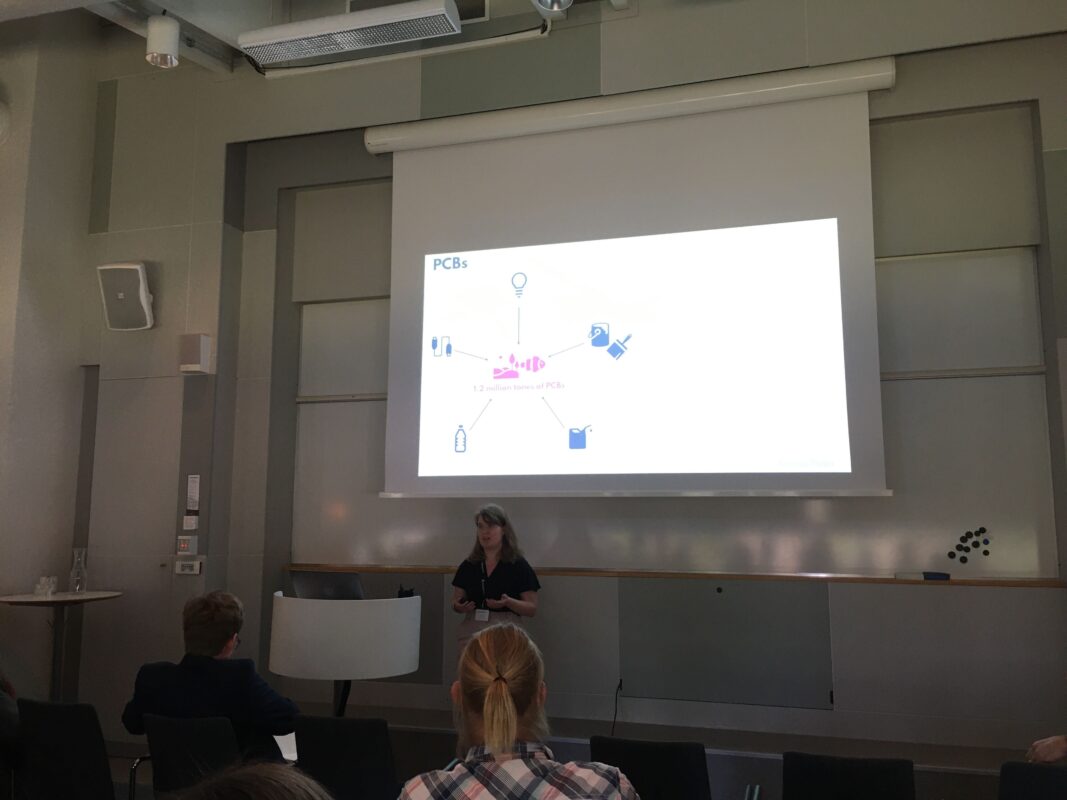
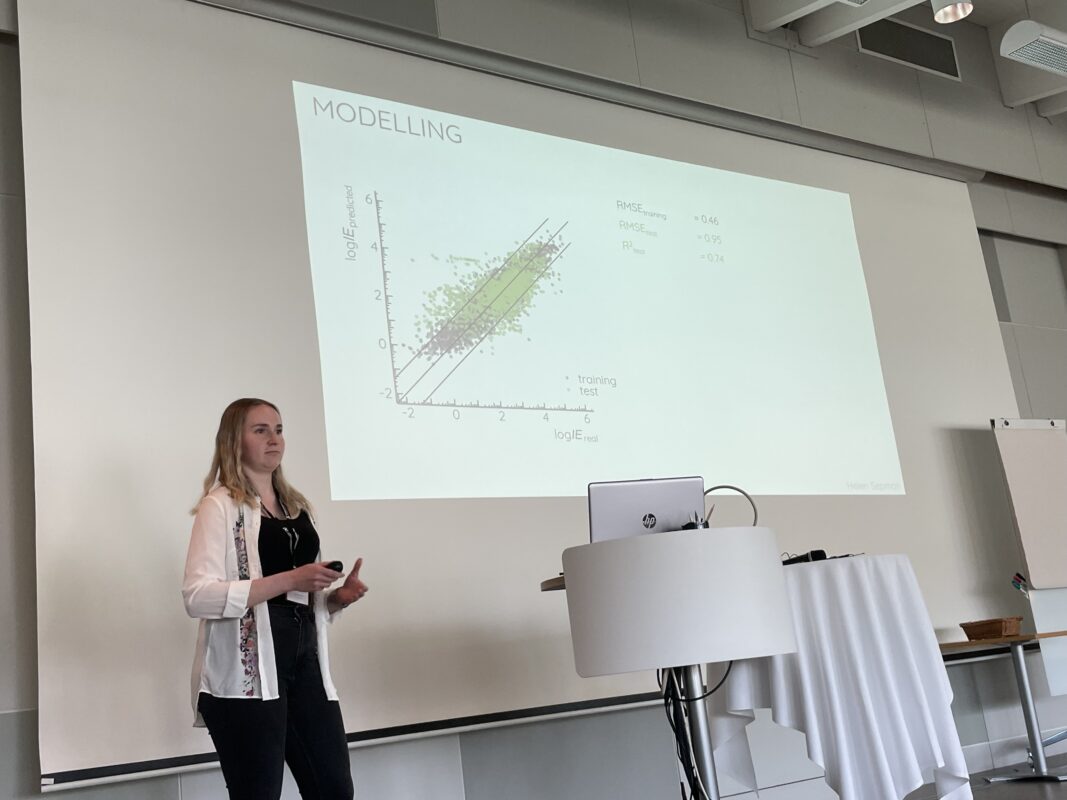
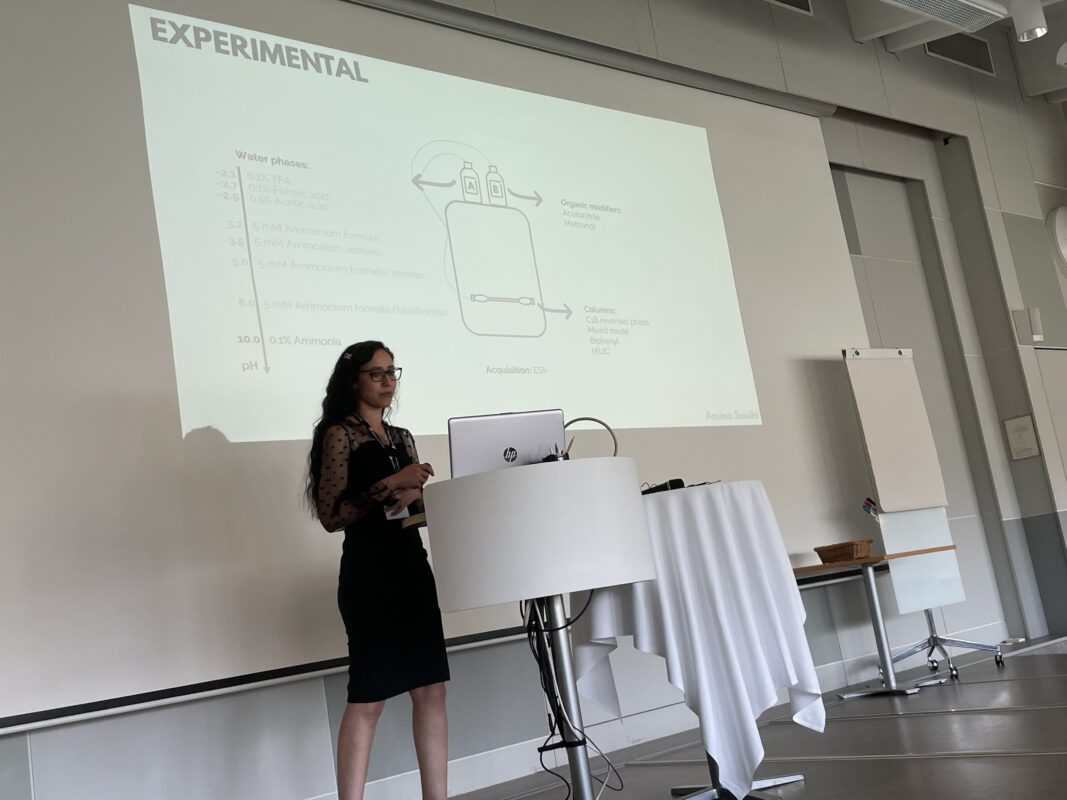
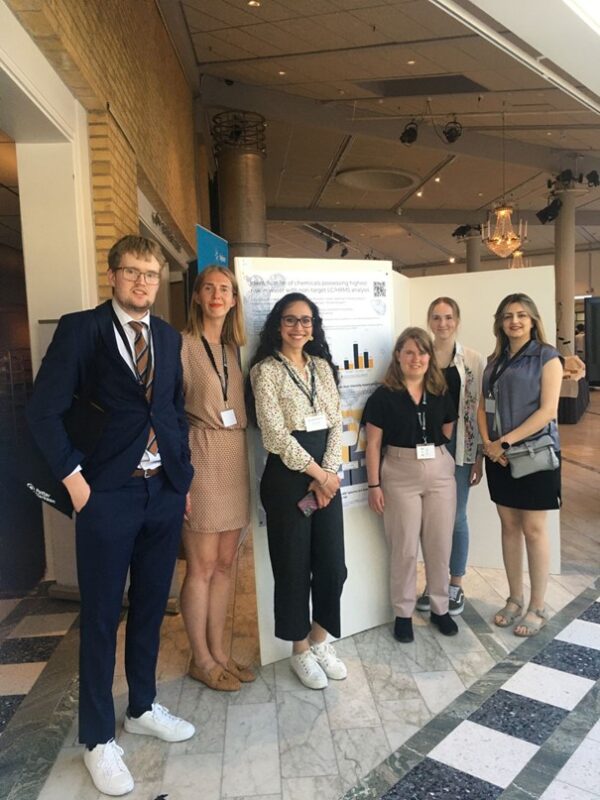
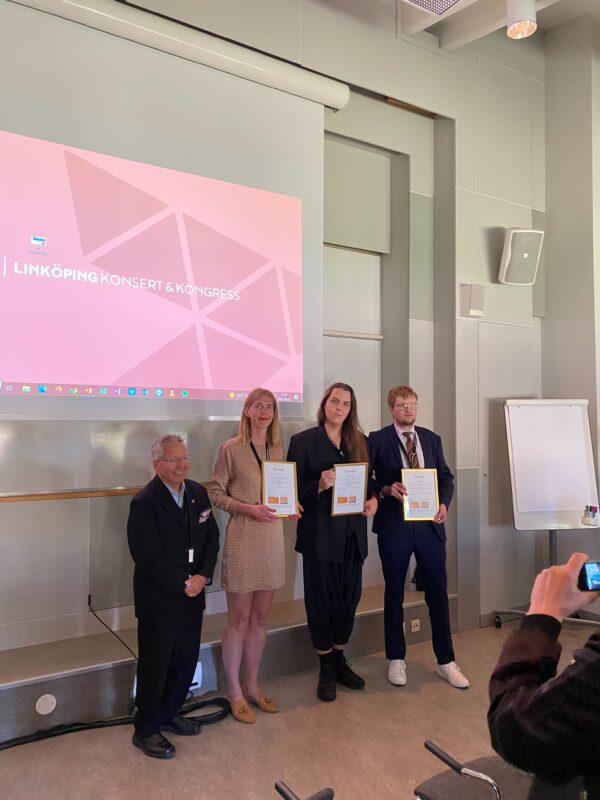
Emma: SweChem2022 was my first in-person conference and as a master’s student, I was very happy to get the opportunity to go. It was great to see so many researchers presenting their work in different areas of chemistry. It was a challenge to try to understand it all, but I learned a lot. Especially, I enjoyed one of the last keynotes by Lee Cronin who talked about chemputation and how machine learning can be used to predict organic chemistry reactions. Among other things he showed a programable chemical robot used for producing more repeatable organic chemistry synthesis, and how it was used in a closed loop with online analysis and a neural network to learn and generalize reactivity. Since predicting reactions in wastewater treatment, as part f the ZeroPM project, is what I will do next this provided some inspiration. I was also very happy to get so many good discussions about my presentation of my master’s project and to meet new people working in the same field.
Helen: The Second National Meeting of the Swedish Chemical Society in Linköping was my first in-person international conference and gave a nice overview of research done and in progress in Sweden. It made me once again realize how wide field chemistry is and it was a pleasure to meet the plethora of enthusiastic researchers. The Analytical Chemistry sessions offered a variety of clever ideas and solutions from sample preparation during sample transportation to even some possible uses of ML. From keynotes, a fascinating presentation from a forensic scientist with a very compelling crime story was very memorable. It showed the importance of analytical approaches in a truly hands-on case where residues from different burned fats were compared using MS to prove the proposed chain of events. Additionally, it was a pleasant surprise to see prof. Cooks talk about charged droplets as an environment for synthesis, which provided a lot of joy of recognition. I am thankful for the possibility to participate and contribute by presenting a bit of my research in the field of NTA.
Amina: Swechem2022 was my first in-person scientific conference after 2 years of attending online conferences due to Covid-19 restrictions. It was a great opportunity to hear about ongoing research around Sweden and talk to researchers and other Ph.D. students. The plenary talks by Molly Stevens and Graham Cooks were very inspiring and fascinating. The analytical chemistry sessions were interesting as well, especially the presentations by Mynta Norberg on a new toolkit for lignin spaces and Jerk Rönnols on small angle X-ray scattering. In addition, I had the opportunity to present part of my Ph.D. research which help me to get good questions, feedback, and good discussions. I enjoyed Swechem2022, Linköping, and meeting colleagues from Stockholm University.
Anneli will also be taking over as the vice head for the analytical chemistry section in the Swedish chemical society.


